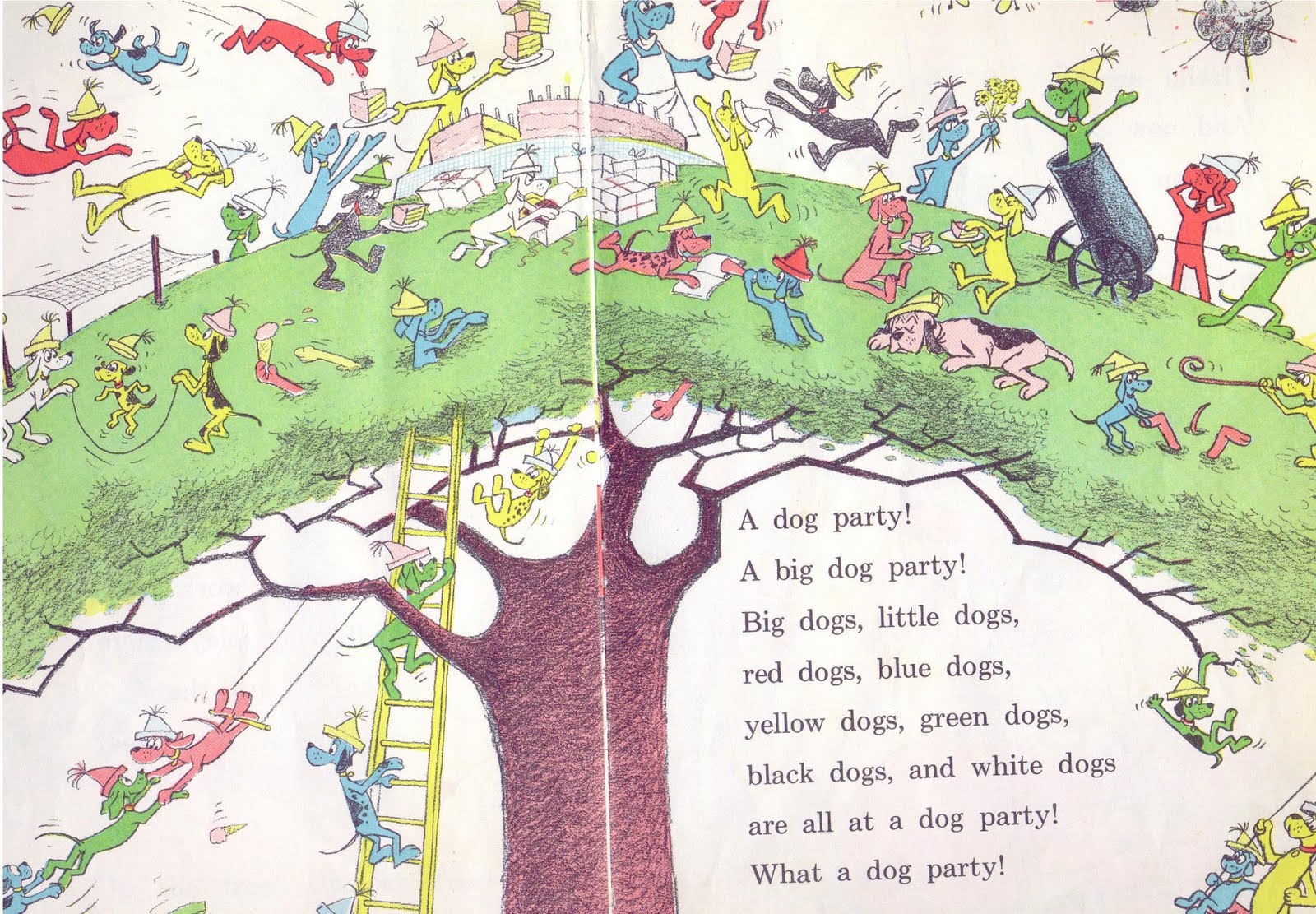I love Dr. Seuss and it is no surprise to me when he is a favorite of others. "Do you like my hat?" has become a beloved phrase in the Nelson house, as we begged my mother to read "Go, Dog. Go!" again and again. It looks like it is Chadwick's daughter's favorite too. Seeing as she knows the ending, I bet she begs him to read it over and over too.
This poem is arranged in very long stanzas- the first being 28 lines describing and analyzing different parts of the book. For example:
Mid-ocean, midnight, / the black water smooth as sleep,/ or maybe death, but she'd never think of that,/ would she?
The lines are broken up into thoughts, almost miniature tone-shifts themselves. Much of Chadwick's lines and thoughts are like this, taking an adult perspective to a child's book. This is shown in sentence length (he has very long, intricate sentences, whereas Dr. Seuss has small, short phrases) , as well as commenting on things like "impossible three-story rowboats." He adds realism to fiction and even adds hints of Seuss to his sentences. I feel like he longs to see the world and stories through his daughter's eyes, as one who waits for a final party and wants to read the same story over and over again.
The first stanza builds to Dogs together at last, eating big slices of cake and jumping on trampolines directly to a tone shift into the final 6 lined stanza reminiscing over a book ending and starting over. Is that how children work? It has been a long time since I've been a child, but I am pretty sure they are prone to mood changes. They build up excitement and wonder, only to slow down when it's over and begin to climb again.
This hints at several LDS themes. One, being child-like innocence, wondering and waiting for that "final party" where all the "dogs from the book come together." I think that this could allude to heaven. All us dogs from life coming together to eat cake and celebrate.  Another, being to start over again. Life is a cycle with childhood, adolescence, adulthood- which essentially starts over with each new generation. I hope my children will have the same child-like wonder in books that I did, and that I have the same adult-like wonder in children as Chadwick does.
Another, being to start over again. Life is a cycle with childhood, adolescence, adulthood- which essentially starts over with each new generation. I hope my children will have the same child-like wonder in books that I did, and that I have the same adult-like wonder in children as Chadwick does.
 Another, being to start over again. Life is a cycle with childhood, adolescence, adulthood- which essentially starts over with each new generation. I hope my children will have the same child-like wonder in books that I did, and that I have the same adult-like wonder in children as Chadwick does.
Another, being to start over again. Life is a cycle with childhood, adolescence, adulthood- which essentially starts over with each new generation. I hope my children will have the same child-like wonder in books that I did, and that I have the same adult-like wonder in children as Chadwick does.
Your comparison of Dr Suess pulled me in. I think everyone has had an experience with him and his works from a very young age .Having more of a transition between the two thoughts of the poem you read and those works that we're familiar with would be helpful so you don't just jump in with both feet right of the bat I think would be less jolting.
ReplyDeleteGreat analysis. I too was drawn in by the comparison to Dr. Seuss and was reminded of my own childhood. I really enjoyed how you related to poem to an LDS theme. Thinking of the afterlife as a final party truly sums up our collective thought on the afterlife. I think I'm going to have to read this poem. Thanks for your post
ReplyDeleteI really like Kate's comment. I agree that Dr Suess is something we can all relate to and this is important when trying to find something compelling in your writing. Great, insightful post!
ReplyDeleteGreat reading of the poem, Hailey. Just one thing I thought I'd mention: as much as I'd like it to be mine, it was actually written by Dave Nielsen...
ReplyDelete